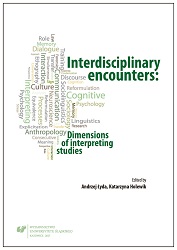Diachronic research on community interpreting: Between interpreting, linguistics and social sciences
Diachronic research on community interpreting: Between interpreting, linguistics and social sciences
Author(s): Marta Estévez Grossi
Subject(s): Language studies, Language and Literature Studies, Theoretical Linguistics, Philology
Published by: Wydawnictwo Uniwersytetu Śląskiego
Keywords: community interpreting; migration linguistics; oral history; qualitative content analysis
Summary/Abstract: This chapter aims to present the interdisciplinary character of (diachronic) research on community interpreting by presenting an ongoing project on the communicative situation of the migrant workers from Galicia (Spain) in Hanover (Germany) in the 1960s and 70s and their need for community interpreting.In order to be able to thoroughly describe the language mediation among this migrant group,it was imperative to provide a detailed linguistic description of the Galician community in Hanover.The theoretical foundations of the project lie therefore on two different and relatively new disciplines: community interpreting within the field of interpreting studies and migration linguistics within the applied linguistics. The diachronic nature of the object of study posed some additional methodological challenges. Being one of the main research problems on interpreting the creation of the corpus, oral history, within social sciences, supplied the guidelines and strategies for conducting narrative interviews, which form the empirical basis of the study. As for the analysis methodology, qualitative content analysis provided a flexible though systematic model to qualitatively analyse a corpus based on linguistic material, such as semi-structured interviews.
Book: Interdisciplinary encounters: Dimensions of interpreting studies
- Page Range: 11-30
- Page Count: 20
- Publication Year: 2017
- Language: English
- Content File-PDF

